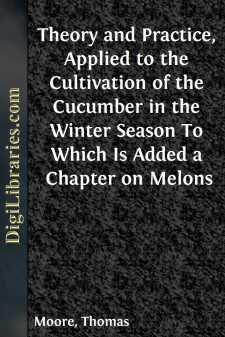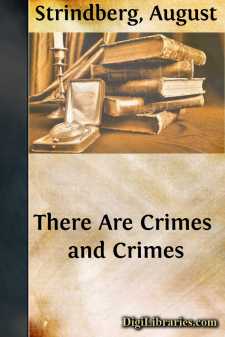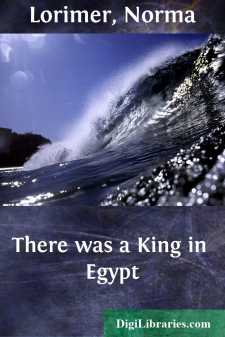Fiction
- Action & Adventure 180
- Biographical 15
- Christian 59
- Classics 6965
- Coming of Age 5
- Contemporary Women 3
- Erotica 8
- Espionage/Intrigue 12
- Fairy Tales, Folklore & Mythology 236
- Family Life 169
- Fantasy 117
- Gay 1
- General 596
- Ghost 32
- Historical 808
- Horror 43
- Humorous 160
- Jewish 25
- Legal 4
- Medical 22
- Mystery & Detective 315
- Political 49
- Psychological 41
- Religious 64
- Romance 159
- Sagas 11
- Science Fiction 730
- Sea Stories 113
- Short Stories (single author) 537
- Sports 10
- Suspense 1
- Technological 8
- Thrillers 2
- Urban Life 31
- Visionary & Metaphysical 1
- War & Military 173
- Westerns 199
Fiction Books
Sort by:
ON CHRISTIANITY, AS AN ORGAN OF POLITICAL MOVEMENT. [1846.] FORCES, which are illimitable in their compass of effect, are often, for the same reason, obscure and untraceable in the steps of their movement. Growth, for instance, animal or vegetable, what eye can arrest its eternal increments? The hour-hand of a watch, who can detect the separate fluxions of its advance? Judging by the past, and the...
more...
by:
Thomas Moore
Chap. I. INTRODUCTORY REMARKS. The Cucumber, Cucumis sativa, is supposed to be a native of the East Indies; but like many other of our culinary plants, the real stations which it naturally has occupied, are involved in obscurity: in habit it is a trailing herb, with thick fleshy stems, broadly palmate leaves, and yellow axillary monæcious flowers. In the natural arrangement of the vegetable kingdom,...
more...
by:
George MacDonald
CHAPTER I. FATHER, CHILD, AND NURSE. It would be but stirring a muddy pool to inquire—not what motives induced, but what forces compelled sir Wilton Lestrange to marry a woman nobody knew. It is enough to say that these forces were mainly ignoble, as manifested by their intermittent character and final cessation. The mésalliance occasioned not a little surprise, and quite as much annoyance, among...
more...
Strindberg was fifty years old when he wrote "There Are Crimes and Crimes." In the same year, 1899, he produced three of his finest historical dramas: "The Saga of the Folkungs," "Gustavus Vasa," and "Eric XIV." Just before, he had finished "Advent," which he described as "A Mystery," and which was published together with "There Are Crimes and...
more...
Doctors had given him just one month to live. A month to wonder, what comes afterward? There was one way to find out—ask a dead man! The amber brown of the liquor disguised the poison it held, and I watched with a smile on my lips as he drank it. There was no pity in my heart for him. He was a jackal in the jungle of life, and I ... I was one of the carnivores. It is the lot of the jackals of life to...
more...
by:
Gilbert Parker
I "YORK FACTORY, HUDSON'S BAY,"23rd September, 1747. "MY DEAR COUSIN FANNY,—It was a year last April Fool's Day, I left you on the sands there at Mablethorpe, no more than a stone's throw from the Book-in-Hand Inn, swearing that you should never see me or hear from me again. You remember how we saw the coast-guards flash their lights here and there, as they searched the...
more...
by:
Norma Lorimer
CHAPTER I Dawn held the world in stillness. In the vast stretches of barren hills and soft sands there was nothing living or stirring but the figure of an Englishman, standing at the door of his tent. At the hour of sunrise and sunset the East is its own. Every suggestion of Western influence and foreign invasion is wiped out. The going and the coming of the sun throws the land of the Pharaohs, the...
more...
by:
V. E. Thiessen
Evening had begun to fall. In the cities the clamor softened along the streets, and the women made small, comfortable, rattling noises in the kitchens. Out in the country the cicadas started their singing, and the cool smell began to rise out of the earth. But everywhere, in the cities and in the country, the children were late from school. There were a few calls, but the robotic telephone devices at...
more...
A Peep at Tolcarne. “Ed—Ward!” “Yes, mum.” A stiff, high-shouldered footman turned round as he reached the breakfast-room door. “Are you sure Sir Hampton has been called?” “Yes, mum.” “And did Smith take up her ladyship’s hot water?” “Yes, mum.” “Are the young ladies coming down?” “They went out for a walk nearly an hour ago, mum.” “Dear me! and such a damp...
more...
CHAPTER I. "Take any shape but that, and my firm nervesshall never tremble. Hence horrible shadow!Unreal mockery, hence!"—MACBETH It was a gloomy evening, towards the autumn of the year 1676, and the driving blasts which wept from the sea upon Greville Cross, a dreary and exposed mansion on the coast of Lancashire, gave promise of a stormy night and added to the desolation which at all traces...
more...











